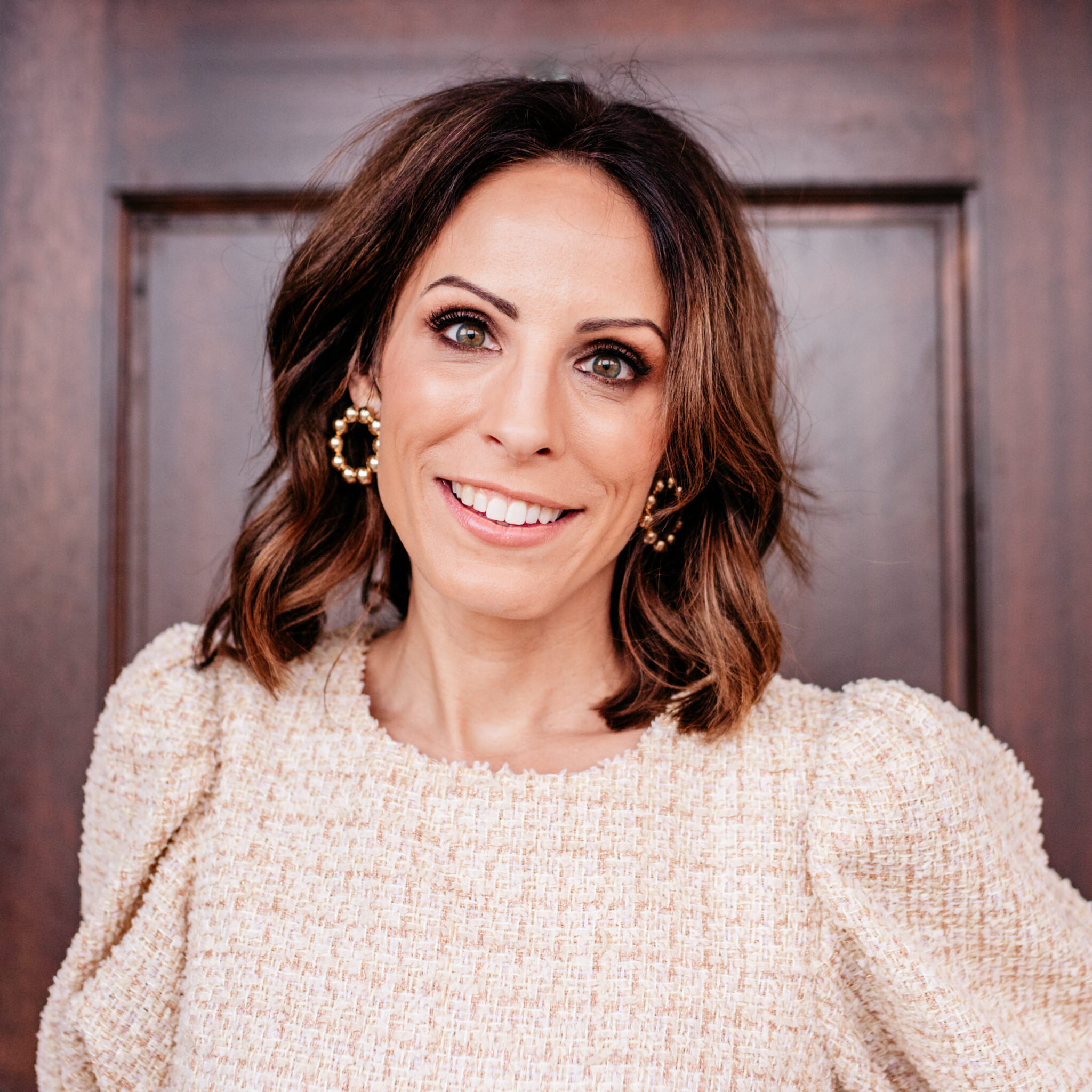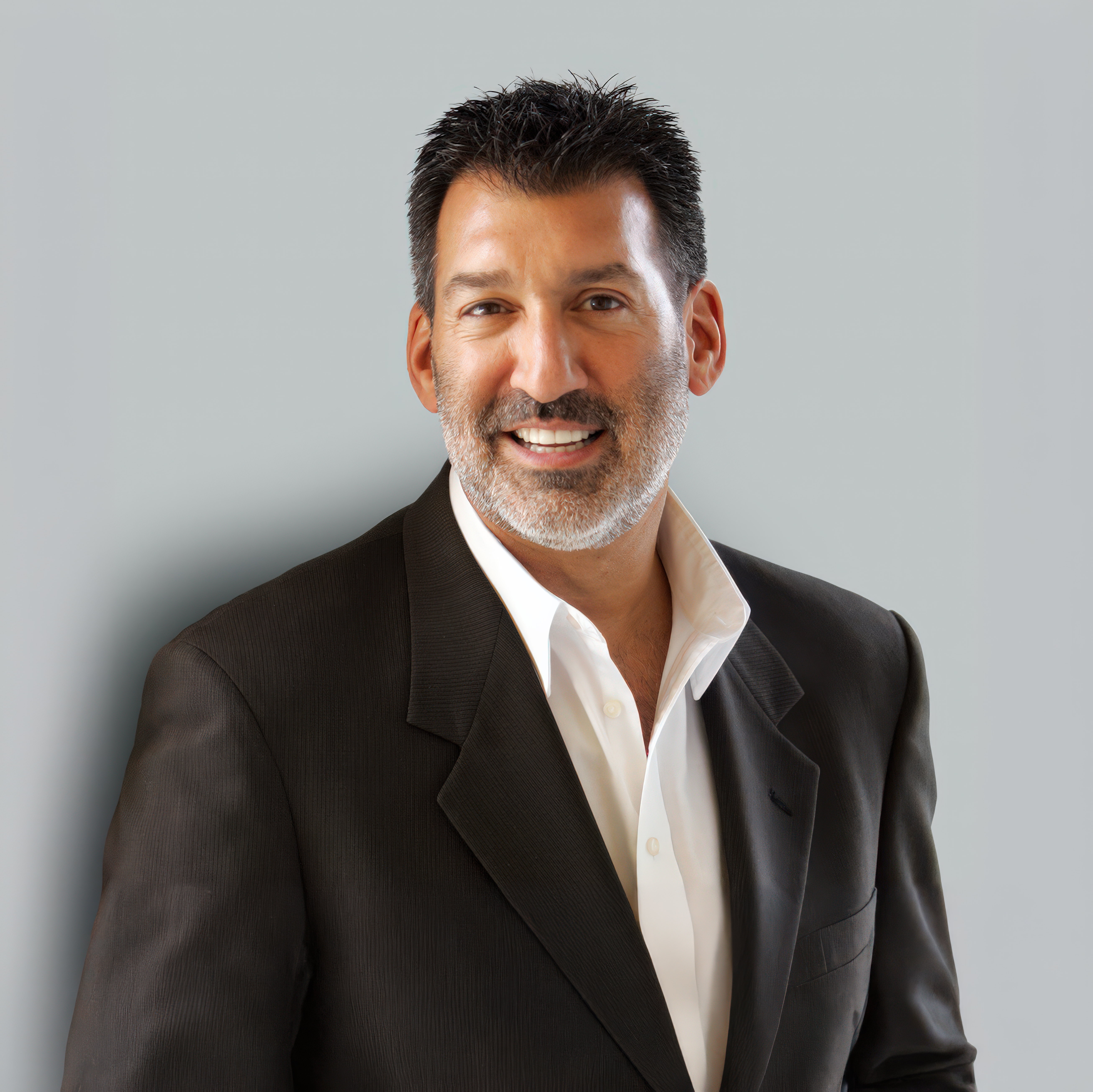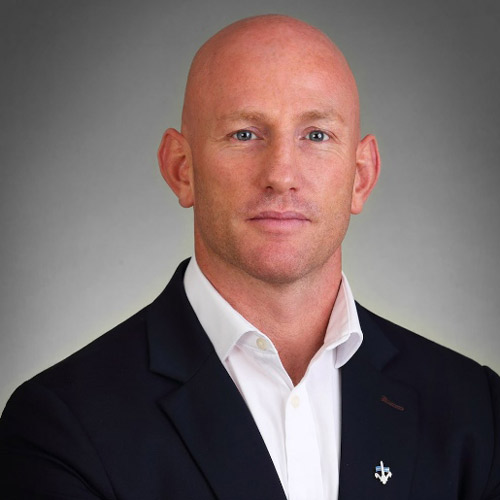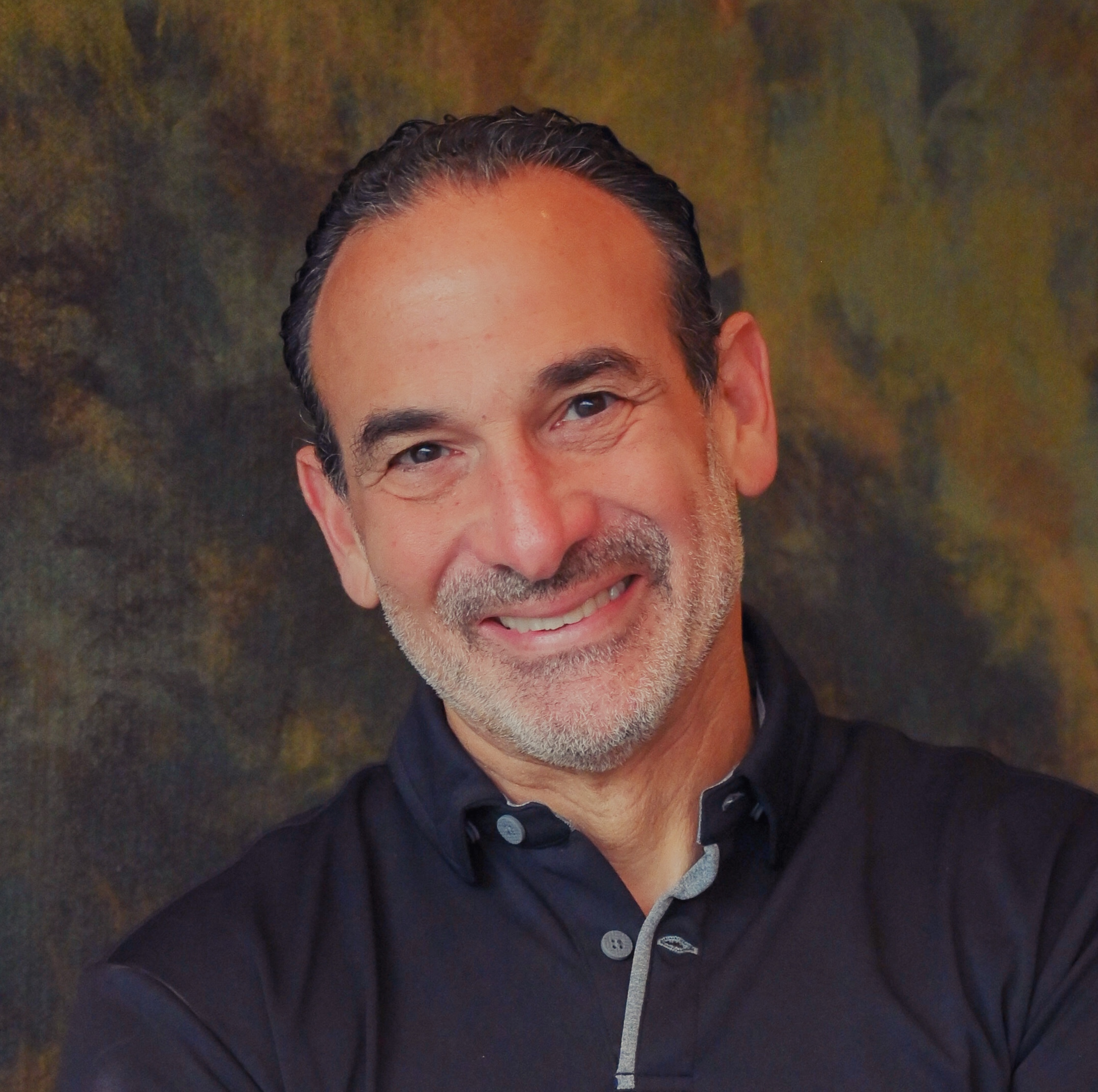RV (00:00):
Well, if you’ve listened to this show for any amount of time, you’ve probably heard us talk a lot about book launches. Book launches is one of the things that we do really, really well. As of this recording, we have helped 17 different clients become New York Times or Wall Street Journal bestselling authors. We had two clients last year that pre-sold over a hundred thousand copies before their launch date following our system. But what we do is we help people come up with the sales strategy for how to sell the books, and then we help make sure those, those books sales happen in a way that get optimized and reported in the most optimized way for the bestseller list. What we don’t do is PR and we get asked this question all the time, who do you recommend for pr? Do you have someone for PR that we could talk to that can just like, just focus on getting you booked on shows and, and all that kind of thing?
RV (00:53):
So we’ve, we’ve worked with lots of people. We’ve talked with them, but today I want to introduce you to Paige Duncan, who’s a longtime friend of mine, and she is, her team is who we recommend for this service. And so we’re gonna talk about doing book launches, PR specifically for book launches, because this is a part of Paige’s expertise. So she was the head of PR and Talent at Success Magazine, which is where her and I met. So one of our brand builders, group clients bought the company. He asked me to be an interim editor for like a year. Paige was there. I met her immediately, was like, oh my gosh, this woman is awesome and good and smart and sharp and all the things. And she’s been in this industry for 15 years. She’s, she has sort of developed a very specific niche around PR for book launches. She’s been credited also with landing multiple authors on many of the bestseller lists, and she’s just super innovative and, you know, knows how to get an author attention in a crowded marketplace. So, Paige, welcome to the show friend. Woo.
PD (02:02):
Great. Thank you so much. It’s like we’re just grabbing a coffee today.
RV (02:06):
Totally, totally. So let’s talk PR for book launches. Yes. what do you think authors who are moving into this world, whether, whether they’re doing it themselves or they’re working with you, or they’re hiring somebody else, what do they need to know, like about getting media attention today for their book? Yeah. Like what are some of the big things where you go, man, I have to tell every author this over and over and over and over, and so we’re gonna tell ’em all right here one time, get it recorded.
PD (02:40):
Yes. Yes.
RV (02:41):
And
RV (02:41):
They’re gonna, they’ll come to you knowing, knowing this.
PD (02:44):
Yes. The number one thing where I tell all of the authors I work with is, the media actually doesn’t care about your book . Now, when I say
RV (02:53):
That statement, what a great way. Can we cut? We need to cut that for social media. That’s the clip right there. The media doesn’t care about your book.
PD (03:03):
They don’t, and it sounds harsh, but here’s the thing that I, then I follow that up with. The media doesn’t care about your book yet, because what they have to understand is who you are, why you are the authority or expert in this space, and you have to build that trust with them first as an individual or as a company. Then they will care about your book. Mm-Hmm. , if you go in and just pitch a book, there are hundreds of books like, you know, on the marketplace, and it’s not news for them. A new book is not news. And so you, number one, you’ve gotta create that bond and trust with a reporter, a journalist. And number two, you’ve gotta make your book relevant to the news taking place right now. Mm-Hmm. . So it, for example, if you are have a book on leadership, and there is say, a big change at Apple with their C-Suite team, right? And it’s going to cause like innovation and all these amazing things that happen with Apple. Well, your book can be tied into that news of what’s happening in, in Apple, talking about leadership traits that they should be incorporating as they go through this significant shift in their company. And so, whatever is happening in Trendy News, relate it back to your book, and that’s how you’re gonna get the attention from the media.
RV (04:22):
Mm-Hmm. . Yeah. I, I I I love that just this idea that like, your book is not news. The news is news. Mm-Hmm. , and then your connecting your book into what’s happening in the news. That’s how you, you get those appearances now. You talked about building sort of credibility and the trust Yeah. With these reporters mm-hmm. . And it feels a little bit like a chicken and the egg thing. Like how do I mm-hmm. get them to know about me without having something to pitch to them to do, like
PD (04:51):
Exactly.
RV (04:52):
So what do you, how, how do you go about building that, you know, relationship and trust with the reporters?
PD (04:59):
Yeah. There’s two approaches that I teach. So number one is a approach that works really well, and that is you pitching yourself as a source to one of their stories. So if they, if you see them writing stories, let’s say about TikTok and all things happening at TikTok and your book is about the effects of social media of today or something like that, you simply find their email address and you reach out letting them know you really enjoyed their TikTok story on X you share a little bit of background about yourself and just leave it at, I would be happy to be a source for any other future articles you’re working on. You’re simply offering them, because journalists and media need sources every time they put out a piece of content, it’s part of the credibility of journalism. And they’re always desperate to find an expert to share a quote, share another perspective. And it’s a baby step in getting your name, like in quote, roundups, or like I said, if they just need you to come and give like an alternating view on that topic. And so what you do is literally Google search news stories about your book and your industry and what’s trending right now, and reach out to those reporters.
RV (06:15):
Got it. Uhhuh,
PD (06:16):
The second part of the so
RV (06:17):
Hold on, hold on. That I wanna hear, I do wanna hear, hear the second one, but, so, so when you say you find their email address, okay. So I love what you’re saying. So you go mm-hmm. , first of all, you gotta just like pay attention to the news, right? What is attention is Forbes, what is Forbes writing about? What is Fox or c n n, what are they doing stories on what’s trending? There’s a bunch of ways to figure that out. You can set up mm-hmm. mood alerts. You can, you know, click on the trending button on TikTok. Like you can figure out, just look at whatever people are talking about. Just watch the news or read the articles. So then you find the reporter, which is pretty easy. Mm-Hmm. . ’cause Their name is usually there. It’s pretty
PD (06:54):
Easy. Yeah. Yeah.
RV (06:56):
How do you find the contact information? Like
PD (06:58):
What’s
RV (06:59):
The, how do you go about
PD (07:00):
That? That, this is my favorite part, Rory. ’cause You get to be a little bit of a spy in the best way. And so there’s a couple ways you can do this. Let me start with the free to like the page. Yeah. So the free way to do this is actually like Wall Street Journal and some of the outlets will list an email button for their journalists. So some outlets, but that’s probably a 20% Right. We’ll share the email upfront. The second thing you can do is you can find them on social media. Right. If you know their name like Rory Vaden, I’m gonna put ’em on Instagram. You can also start a relationship on social. Like if you cannot find their email free and you still wanna do free, find ’em on social. Yeah. And again, just serve them, interact with their content and message them there.
PD (07:46):
The third way you can do is you can pay for like a rocket reach or email lookup platform. Right. That can find their email. And so that’s a wonderful way, if any of you are in sales, you know about these different, and, you know, platforms that will help do a reverse email lookup. But then the last option is you can actually get a PR C R m. And so this d r m literally lists the database for all journalists and media unit talent bookers. And it allows you to be able to put in like an, a company like Forbes, like the media brand, Forbes, and it pulls up all the writers and what beats they cover. And the recent agencies, we almost all PR agencies have one, they do have cost effective solutions, though also if you’re just a one-on-one looking to have this access. But if you know you’re gonna go out and you’re like, at PR is my focus right now, this is, I’m going all in. I would suggest looking at the PR C R M because it will take, save you a lot of time compared to the free version to be able to find exactly who you need.
RV (08:52):
Is that, and is that like is that like Cision or something else that you’re talking about?
PD (08:57):
Yep. It’s like Cision. There’s one called MuckRack. There’s a cost effective one called Prowly. You’re exactly right. It’s any of the
RV (09:05):
Prowly,
PD (09:06):
Uhhuh , Prowly, P R O W L Y.
RV (09:10):
. I haven’t heard of that one. Uhhuh. . Now that the other way to do this, of course. ’cause You know, and sometimes when you’re first starting, like, this is how I started, right? And it was exactly what you just described. I would just go, oh, hey, they’re writing on this. They should be mentioning me. Or maybe they’d wanna do an interview mm-hmm. on, you know, I could help create, I could not think of it as, oh, they’re gonna promote me. Think of it as I can help provide content for them or be a source for them and I can help promote them. Like I can share their articles. Yes. and so I started on social and then I would do this, this, do all these same things. And then over time you realize, wow, it takes a really long time to do this. And so that’s when you go, you hire someone like you to go like, me
PD (09:54):
Too, . It’s way,
RV (09:55):
Way. ’cause Not only do you have to, you have to figure out who you gotta figure out what topics are they writing on, who is writing on it. Mm-Hmm. mm-hmm. , then the contact information. And then you have to actually angle your pitch to be custom. And I think that’s the thing that I think a lot of people screw up is they send one blanket email blast to everybody the same message. That doesn’t work.
PD (10:17):
It doesn’t work. And it’s too long. And I love what you’re saying before, and I wanna hop back a minute, to your point, Rory, of serving them, I always tell people, what problem are you trying to solve for the reporter? That’s what they wanna know.
RV (10:29):
Yes.
PD (10:29):
Like, what is the problem? How are you solving it? That’s news. And so, to your point on the communication, I always, always preach no longer than 250 words in your first email. It sounds super short, but all of my editor friends have told they get over a hundred to 150 emails a day of pitches that literally on top of every other news thing that come into the inbox,
RV (10:53):
Wow. They
PD (10:54):
Are not gonna read no longer do you just send that a press release. You’ve got to really build that relationship. And then the art of crafting a pitch is more critical than ever now. For sure.
RV (11:06):
Yeah. And it isn’t, it’s an art and it’s like anything, I mean, it’s, it’s like, are you likely to open your mailbox and mm-hmm. grab something that looks like a total spam, or are you gonna open something that looks like a handwritten note and then you open it and it is handwritten and it’s, it’s completely a custom story to you versus like a printed flyer or something. Like, it’s just like that except Right. And that takes time. And that’s, that I think is where you really come in to go, Hey, do you want someone to help, help do this? What was the second thing? So you said there was two ways to build a relationship. The first mm-hmm. , the first one is to basically be a source for them. Mm-Hmm.
PD (11:45):
. Mm-Hmm.
RV (11:46):
. What’s the second?
PD (11:47):
Number two is tapping into what you just said as well, is serving them content. So becoming a contributor to their outlet and serving them with their expertise. So this works really well. Like, let’s take Fast company for example, right? And you are an expert in kind of business and innovation and even like team structure and management, reach out to the editors and share your story idea, right? Don’t ask them if you can be a contributor ’cause mm-hmm. that is just gonna get lost and they don’t care. They go with them for a story like the five ways to effectively manage a train team through a success, you know, recession and or so, whatever your content is, and share the synopsis of that article exclusively for them, Rory.
PD (12:37):
And nine times Outta 10, because they are desperate for content. Because teams are leaner than ever at all of these media brands, and there’s just not enough of them to create content. And so if you can really provide value as a contributor, also known as a bylined article, right? You get your name listed on Fast Company’s website, and if it’s picked up in print, the magazine, and you start to build that relationship of credibility with that brand serving them. So when you do go in for an ask for your book, you’ve already provided them immense value mm-hmm. . And you, you’re also elevating your whole personal brand at the same time as your book too.
RV (13:20):
Yeah. Yeah. I, I mean I, there’s a couple things there going on. One, I love like treat it like a date, right? Don’t show up and ask to get married. Like, Hey, I wanna be a monthly contributor, right? Like, let’s go on a, let’s go on a date. Let me pick, you know, here’s an idea for a story. Mm-Hmm. , I’ll write it for you. I don’t want any money. Mm-Hmm. , I just, you know, that’s an Easy’s no ask.
PD (13:42):
Yes, yes. Easy. Yes. Rory. And so many outlets are literally calling and needing it and quality content because like I said, they just don’t have the manpower to produce it anymore. Yeah. Unfortunately.
RV (13:55):
And just to pause, like a little side note here for you listening, if you’re a speaker or an aspiring speaker, you know, with speaking business is another thing that we know a lot about and have a lot of success with, and teaching people how to get speaking gigs. And we say, Hey, the number one reason you get booked to speak, which will never change, is because someone has seen you speak. That’s the, if you wanna be a speaker mm-hmm. You gotta go out and speak, but the number two way to get booked to speak is because someone has read something you have written. And you know, like a lot of speakers become speakers because they start writing. One is a book, which is much harder in longer process than you just start cranking these articles, you know, a couple times a week. And you know, I I, I think of, you know, I’ve got a couple friends, Dory Clark, Matthew Mayberry, like they have really built a great speaking career at a lot of it started from writing these articles and it’s almost better, like not almost better. Mm-Hmm. , it’s definitely better it’s way better to have an article that appears in Fast Company every week written by me that is way more valuable than one random article with one paragraph about me, with one random mention of my book. Like,
PD (15:11):
Yes, it’s
RV (15:12):
Way more valuable.
PD (15:14):
It is. Ryan, I’m so glad you brought that up, because it leads to a much longer lifecycle right. Of promotion and opportunities for you doing this strategy. And like you said, it requires some upfront work, but nothing like, if you’ve already written a book, this is a walk in the park, right? This is nothing of your time. And the beautiful thing is you can pull elements from your book can serve as that content generator for years for you to pull from, so you don’t have to reinvent the wheel with what you’re writing about. Mm-Hmm. And you can
RV (15:43):
Find
PD (15:44):
Ways to thread the content together for soft promotion. But that is one strategy we help do immediately out of the gate, especially during pre-sale, right. In setting up those relationships and starting to build that awareness. It’s a great strategy to start, honestly now, like even if you haven’t thought of your book idea, just incorporate this into your media outreach plan.
RV (16:07):
Yeah. The the other thing that it does is it becomes a huge networking opportunity for you because you become a member of the media. Mm-Hmm. You go from trying to be mm-hmm. In the media
PD (16:15):
To
RV (16:16):
Being I am a, I am the media. Yes. And now you can network with pretty much anybody you wanna know because they, you, you’re in control of who gets mentioned in in that. The, the other thing I wanna mention here is on, on the, on the topic of like getting booked to speak from this mm-hmm.
PD (16:32):
RV (16:33):
And, and for beginners, you also don’t need to, it doesn’t have to be Forbes or entrepreneur No. Or fast company. Like those are the huge ones. But when you were saying they’re spread thin, the ones that are spread the most thin are the, like, trade industry journals. They gotta produce a magazine every month or every quarter.
PD (16:54):
Yes.
RV (16:54):
They’re begging their members to write an article. Nobody wants to do it. And yet, if you are in an industry or a vertical and you go, it’s easy to get those writing jobs and it’s literally, it may not have 500 million readers, but it’s gonna have a thousand of your perfect readers. And that’s, you know, that’s a really big key. You, you think
PD (17:18):
It is key, Rory, that is the other element of this. Make sure you’re contributing to where your target audience is, right? Mm-Hmm. . And that’s key. So say again that you have a business book, but you’re writing for cosmopolitan.com , it’s a different target audience. And so you’ve gotta be really clear with where you’re writing to and to your point, there are so many forms of media that are not kind of the big trade that you can still make such an impact with and not only contribute to, but potentially then have access to their email list when your book comes out and
RV (17:51):
Create
PD (17:52):
A greater opportunity through those smaller publications.
RV (17:56):
Yeah. That, that’s the other thing is like, you’re never gonna get Forbes to send an email. Like even e even if you’re James Patterson, they’re not gonna send an email out about your book. No. But, but if you, if you have some relationships with some of these smaller ones, and that’s part of the deal mm-hmm. , because they, what, they can’t pay you much in money typically, so they pay you mm-hmm. in like promotion and reach mm-hmm. and to ask for, Hey, I’ll do this, but I want you to send an email blast on my behalf once a year or every time I have a book come out. Or I love that. So, so what are some of the other what are some of the other things that you think work really effectively, specifically during book launches that people can do mm-hmm. if they go like, I do need some coverage for my, for my book, or what are some of the other mistakes you think that people make there?
PD (18:41):
I think that first mistake is that people do not plan PR the same way that they plan on writing a book. PR is always like an afterthought. Like, they’re like, oh crap, my book comes out in 60 days. I don’t have the sales I wanted. I need to do, you know, like, now is the time to start. No minimum, I beg you authors to start at least six months out because in media news cycles, it can take that long to place impactful stories. So the ones of the bigger outlets, the bigger podcasts, right, the bigger articles you need that longer lead time. And that’s probably the number one pain point that I see when authors come to us, is they’re scrambling. Right? And it doesn’t have to be that way. The second thing is, I always recommend you plan for a year strategy also, not counting pre-sale, but from when your book launches following that year. Because so many authors, and you’ve seen this already,
RV (19:37):
You’re saying post public, you’re saying post-publication,
PD (19:40):
Post pub, all the way through your year anniversary, have a robust media plan. ’cause Too many authors I’ve seen, they do amazing presale and amazing that first month of pub and then their media just like drops off and they’re, you know, it’s just sprinkled throughout, but it’s a sprint, right? And you need to continue that sprint. And so when you’re looking at planning, of course you wanna bank many of those large episodes as you know, in pre-sale. But it’s just as important to continue that momentum, especially through that first year. And keep your eye on the media and focus on the pr part of the book as well, because that’s where you’re gonna continue to reach new audiences and garner new attention and continue to bring that sales momentum going instead of letting your sales dip and then trying to inflate it back up with media like three months later.
RV (20:33):
Yeah. Yeah. Totally. I mean, you gotta, you gotta keep building the brand, building the platform being out there. So are there certain, are there certain mediums that you think mm-hmm. work better than others for selling books specifically? Yes. Because you know, that’s, that’s one of, one of the things we educate a lot of people on is they think that PR is going to sell all their books,
PD (20:59):
Right?
RV (20:59):
And it can, it can help, but typically you have to be more focused. If you’re trying to make a sale like a conversion, you’ve gotta be doing other stuff far above and beyond pr. But, but when you,
PD (21:11):
Yes.
RV (21:12):
When you just go, what, what are the mediums or the outlets in PR that you think actually do move the needle on book sales? Like somebody going to buy, not just hearing about it, but actually going to make a conversion.
PD (21:27):
Do you know what we’ve seen the number one medium that sells through PR right now, books specifically is podcasting. Yeah.
PD (21:34):
So podcasts, podcast, podcast, which I know all of your listeners have probably heard before, but it’s still the leading way that converts to a sale, specifically when we’re talking about books. So what I already say is, don’t poo poo any podcast that might not seem like up to your elevation of where you think you should be. Right? Like, let’s not be too big for a britches if they have a target engage audience, those are customers and they’re waiting to buy your book. So it’s like you have to level set what you’re doing with podcasting during a book launch. Like, yes, your end goal might be on your podcast, Rory, it may be on Lewis’s podcast, but let’s also look at the, just like trade media. Let’s look at the ones that still have similar target audiences and do as many podcasts as you can. ’cause That is a huge driver. The other one, Rory, and I know this can seem like a little bit of a stretch, but it still rings true TV converts to sales.
RV (22:34):
Hmm. And
PD (22:34):
So when I’m talking, but I’m talking about like nation national, right? So if you have a book, I mean, for example, anytime we have a client on today’s show or Good Morning America, it moves a thousand to 2000 books, right? Like it moves a significant number of books depending on kind of where you are known wise to the audience. So I know, and national can be kind of far out of reach for some people. And so what I say with that is like, don’t throw away the local TV station. Don’t throw away that opportunity thinking it’s too small for you because they feed up into the national station. So if you have interesting content and you book yourself on your local N B C, it is much more likely for you to get picked up nationally by taking that clip and sending it to the Today Show how you’ve already been on the affiliate and the reaction that you’ve had there. And it is a great proof point to then take to the national media as you pitch them for that opportunity.
RV (23:37):
Yeah. That’s also huge for your, for your speaker demo video and to put, you know, screenshots of it in your book proposal and in your PR to get yourself booked on other podcasts to show those clips of you on tv. Yeah. All of those, all of those things. Your, your media sizzle reel, the, the, yeah. Let’s talk, oh, one thing on the podcast is, you know, just to echo what you’re saying, you know, to, to become a Wall Street Journal, hardcover, business bestselling author, which is like one of the ma it’s the easiest major list to hit. Mm-Hmm.
Speaker 3 (24:11):
,
RV (24:11):
I say easy, it’s not really easy
Speaker 3 (24:13):
, but it’s
RV (24:13):
Like, you know, to hit the New York Times, you need to, to sell well north of 10,000 units in a week. But to hit the Wall Street Journal business list, it’s typically like a few thousand units, two or 3000 units. So you don’t need millions of people to buy your book in order to become a legit bestselling author, you know? Mm-Hmm.
Speaker 3 (24:33):
like
RV (24:33):
From a major, you know, reputable list. So if there’s a podcast and they have a thousand of your perfect person and you can get a thousand people to move and buy something like, that’s, that’s huge. Plus, you know, that’s, if you’re lucky enough to get on the Today Show, you might move a thousand copies that way. So, but that’s a thousand out of a bazillion people versus Yes.
Speaker 3 (24:54):
You
RV (24:54):
Know, a thousand out of 5,000 because it’s your perfect audience. So I think that’s really good. You know, one I got one last question for you. Before we do that, I wanna let y’all know, so I mentioned at the start of the show, as you could see, right, Paige knows this space, , she understands the way it works. You know, our whole brand builders group service centered methodology and, and giving first and adding value to others first is a core part of what she believes and how she does what she does. And that’s why we recommend her as our PR firm for book launches. So if you need someone to help you do PR for your actual book launch, here’s what I want you to do. Email us
[email protected],
[email protected]. That’s our email address to connect you to all of our vendors.
RV (25:43):
But in the subject line, I just want you to put book pr, that’s it. Just email us, put book PR in the subject line, send an email to
[email protected]. And then we’ll have someone on our team connect you with Paige and walk you through, you know, the whole thing. So you can talk to her directly and her team and see how it works. And you know, I would say, you know, I can say this because I’m not in pr, we’ve seen a lot of people waste a lot of money on PR firms that don’t, they’re not accountable, they don’t have a good plan, they don’t do it, right. They do a total shotgun blanket approach. You know, they’re just sending out a giant press release and they’re not doing the kind of one-on-one follow-up work and building long-term relationships like Paige and her team. So, you know, it can be risky, risky business spending lots of money on pr. Yeah.
Speaker 3 (26:32):
So, you
RV (26:32):
Know, make sure you’re, you’re working with somebody who knows what they’re doing. In this case we’re, we’re totally sure about that with Paige. So email us
[email protected]. Yeah, of course, Paige. So one last quick question is on the tv, ’cause this is the, this is the dream, right? Good Morning America Today course show. You know, of
PD (26:51):
Course
RV (26:52):
What you know, I know you’ve, I know you’ve had that happen for clients when it happens, when you get the big national dream television hit
PD (27:02):
Mm-Hmm. ,
RV (27:04):
How do you get it? What, what are the series of events that led up to that producer saying, yes, I’ll do this. Like, I know it’s always a long shot, but what, what can we do to tip the odds in our favor for a big national TV hit?
PD (27:21):
The first is make sure you’re communicating with the right people. So both at today, good Morning America, c b s, they have specific book producers. So you need to make sure you’re a first talking to the right people. ’cause Too many times people just go to the general producer. That’s not their beat. You need to find the book producer and then to be able to, I mean, it takes a six month plus lead time. They book their spots for books six months out at minimum. So you need to give yourself runway. However, if you miss that window, what you wanna do is tie it to a breaking news or element that’s taking a conversation that’s taking place in society right now, whatever that might be. And you need to be able, again, they don’t care about the book. So you’ve gotta go in first starting with you as a tool and how you’re gonna solve this problem.
PD (28:17):
And it takes months of communication. Like to even, I have relationships with all the book producers and it takes us months of communication and understanding. ’cause There’s only so much airtime that the gift to books. And so you’ve got to be very strategic in how you communicate. And that’s by not spamming them with follow up. Right? What do you think? Do you like my book? How is this doing? What do you think? Right? Am I gonna get a spot like respect their inbox? So only communicate when they respond. You respond back and then give it a couple weeks. Don’t stay on top of it like it is your best friend because you will get blocked very quickly from the show. Mm-Hmm. number two, I will say connect with them on social media. That makes the biggest difference too. We are connected with all the editors and journalists on social.
PD (29:07):
And again, just serve and interact with them on social. They get to see your name continue to pop up. They get to see your content, kind of psychological play, right? And just the power of how many times you’re introduced to them. And then if you’re realizing your pitch is not working, redo it. That’s what I think so many people are afraid of. They forget. It’s just like email testing, AB testing. Obviously they’re not biting over here. So do, is there a new research study out that you can tie that research into how it relates to your book that’s newsworthy to them? Is there a social trend that is happening that somehow ties into your book? Right? So have some type of element that it’s research-based or fact-based to go with your book and something that’s new and approach it that way if your first pitch isn’t working.
PD (29:59):
And then number three, it’s honestly not give up. So if you realize your book is just not hitting and coming through again, go back to this drawing board and reach out just as a source and an expert. I know it kind of sounds like being in a deb horse, but it’s relationship building. You’re retooling. You are not going in with thinking you’re gonna pitch and your book’s gonna end up tomorrow. You’ve gotta give yourself that runway to be able to do it. So the more you can connect with them on email serving and social, the more you can tailor your pitch to that six month timeframe and have it be something newsworthy and exciting. Or if it has a celebrity angle that you can tie to it mm-hmm.
RV (30:40):
, the
PD (30:41):
More likely you’re gonna end up on national news. ’cause You have to think this is National Morning news is lifestyle, right? It’s lifestyle and news. So it’s talking about some politics, cultural elements, right? All of those. But also the second and third hour of those shows are heavily like health, fitness, books, wellness. And so that’s where you’ve gotta pitch your news. And the book editor sit is typically in that second hour or third hour of the morning show.
RV (31:10):
I love it. I love it. So many helpful tips, Paige. So I know practical, I’m so passionate. , practic. I really appreciate it. Thank you for sharing so generously here. You know, everyone share this with someone you know, who is writing a book or wants to write a book or is thinking about writing a book when this is mission critical stuff. And we’re so grateful for you, Paige, and, and we thank you. We wish you all the best.
PD (31:36):
Thank you.













